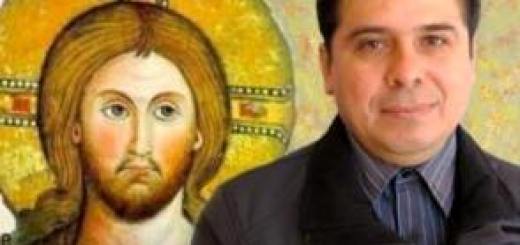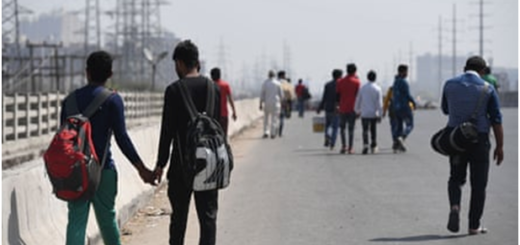A Chile experiment in India? To Cleanse Indian Church of sexual & financial Rot?

Given below is a report from the ‘Horse's Mouth’ (from Inside the Vatican) and therefore most reliable. This is CCV comment on it. The report is about the concluding part of the clerical sex abuse going on for too long in Chile. The Pope had invited all Chile’s bishops – 34 (31 worfking and 3 retired), now in Rome. The meeting will last for three days starting on Sunday May13-15.
What could be the outcome of that meet? Action, action and action after months of talk? Or Forgive 70 times 7? Voluntary resignation by the key bishop accused or suspension by Pope? Bishop Barros, the eye in the storm had offered to resign more than once.
"We all know very well that the removal or dismissal of a bishop depends on the Pope, it would be illogical for us to make any comment on a faculty pertinent solely to the Holy Father", said one bishop, which could well be the general attitude of the whole crowd. In any case Francis Pappa is leading the whole process started three months ago, remotely from 2011, to its logical conclusion.
The fact is that the Pope is not targeting just the episcopate of Chile but the whole People of God (faithful) who make up 90% of the Church in Chile who want to see justice being meted out through deeds, not words alone.
In India?
What could be its application for Episcopates in other countries across the world, especially for India where both sexual and financial abuses were and are going on for long? To the credit of USA it must be said, it was the first country to report sexual abuse cases to civil authorities and action has been taken –many still going – against dioceses and clergy men.
In india such cases are seldom discussed in public either in the secular or religious press. But the one that has hit international headlines is the Ernakulam land-sale scandal with Cardinal Alencherry in the eye of the storm. It is still going on for the last four months in the civil court, with new allegation of church property sold or transferred to the cardinal’s kith and kin (see report in today’s Matters India).
Similarly there are sexual abuse cases as old as “Sr. Abhaya” case in Kottayam and similar ones pending. In the context of such happenings, what the lay people who make us 90 % of the faithful as in Chile, would wish to see is that Pope Francis take a similar initiative to get the whole Indian Episcopate, divided under three Rites, Latin, Syromalabar and Syromalankara, to come together with the Pope guiding, to do some soul searching to take practical steps to wipe out both sexual and financial corruption.
Least transparent & most silent
While the Chile episcopate is made up of some 34 bishops, the Indian Episcopate has a strength of over 100 bishops and is one of the largest bishops’ conferences in the world. As far as transparency is concerned, it is perhaps one of the least transparent and most silent in dealing with clerical sexual abuse cases, while the faithful are becoming more and more vocal in discussing such issues.
One can only hope and pray that such corrective steps would be taken, by Bishops’ conferences around the world, and specially in India, in the nearest future for the good of the whole faithful who are left confused like sheep without enlightened shepherds to guide and lead. What is important is: “Delenda est Carthago” (Carthage must be destroyed), sexual and financial corruption in the Church in India and in all countries, must be wiped out. On this issue there can’t be two opinions. james kottoor, editor ccv.
Please read below the two reports from the Vatican Insider
Abuse in Chile, what to expect. After the Pope-bishops’ meeting?
Iacopo Scaramuzzi & Andrea Tornelli, in Vatican Insider (La Stampa), May 14, 2018
What will change after Francis’ talks with the Chilean pastors? The immediate renunciation of some bishops and a soon renewal within the hierarchies?
The two bishops Luis Fernando Ramos Perez and Juan Ignacio Gonzalez Errazuriz during the conference in Rome on the meeting of the Chilean episcopate with the Pope
VATICAN CITY: The 34 Chilean bishops that the Pope has summoned to the Vatican to face the pedophilia scandal will have the first of a series of meetings with Francis tomorrow afternoon. They are eager to "listen" to the Argentine Pontiff with an attitude of "pain and shame" for the crimes committed against minors and adults. In a press conference organized by the Chilean Bishops' Conference on the eve of the event, two bishops assured that they did not know whether the Pope would have some bishops resign or about other measures he intended to take, but they were preparing for a period of "synodal" discernment with the Bishop of Rome that might last more than "two or three days".
"The Pope invited all the bishops. We came from Chile in 34, 31 operative and 3 retired", Monsignor Fernando Ramos Pérez, one of the seven auxiliary bishops of Santiago, explained in the meeting with the press at the premises of the Vatican Secretariat for Communication. "Our attitude is above all of pain and shame, pain because there are victims who have suffered from the abuses and shame because these abuses have occurred in an ecclesial environment where they should never happen.
“Secondly, we want to listen to the Holy Father, and to Msgr. Scicluna's own conclusions, we want to listen to what the Holy Father intends to tell us with the utmost availability. And, thirdly, we are preparing ourselves for the meeting with an attitude of openness to discernment together with the Holy Father, personal and communal discernment, to achieve, as the Pope said, a broad synodal process, a process of discernment and listening that gives us profound hope. We hope that this meeting will enable us to address these serious issues with the utmost willingness and spirit of change and renewal”.
At the moment, Monsignor Ramos added "we have received from the Holy See indications that there will be "several" group meetings with the Pope in the next days, the first meeting will be held on Sunday, Tuesday 15, in the early hours of the afternoon, in the hall of the Paul VI classroom," the bishop said. "There is currently no Eucharist planned in Casa Santa Marta and we don't know whether there will be one-to-one meetings”. A process of synodal discernment, he said, "takes a certain time, and I don't think two or three days will do it". We don’t have any further detail regarding “the organisation of these days”.
The two bishops explained that they were not aware if some bishops had arrived in Rome with a pre-signed letter of resignation nor if the Pope would have some heads roll: "We do not know, we have not met the Pope yet ", said Msgr. Ramos, "many scenarios are possible, of course we want to listen to the Pope and cooperate to repair the abuses". It is not excluded, as far as the fate of individual bishops is concerned, that the Pope will want to hold personal meetings. As for the apostolic nuncio to Chile, Archbishop Ivo Scapolo, "he returned to Chile after having been to Italy for personal reasons", but "he did not give the Chilean bishops any indications about their journey to Rome nor about the meeting with the Pope".
As for Juan Barros, the bishop of Osorno harshly criticized by the victims of the paedophile priest Fernando Karadima, the bishop of San Bernardo, Monsignor Juan Ignacio Gonzalez, who in the past had defended him, explained that he has actually been close to him in the recent past: "He is a brother, wounded, alone, and abandoned, I stood by him as an act of mercy. It is not up to me to judge him. I have not been in contact with him for two or three weeks," said the prelate, who then did not further comment the presence of Jesuit German Arana who allegedly came to Rome with Barros.
Monsignor Gonzalez did not make any predictions over Cardinal Francisco Errazuriz, whom the victims of Father Karadima have harshly accused of covering up for his crimes: "When you meet the victims, you understand their reaction very well, even the harsh words", he said. "We all know very well that the removal or dismissal of a bishop depends on the Pope, it would be illogical for us to make any comment on a faculty pertinent solely to the Holy Father". In general, "it may be that the holy father has more information than we do, many send information to the Holy See," said Gonzalez, who reiterated "we want to listen to the Pope”.
Commenting on the Pope's request for forgiveness, and his subsequent meeting with the victims, Monsignor Ramos quoted the Gospel, "We must ask forgiveness 70 times 7. I believe that this is our great moral imperative. The important thing is that the request for forgiveness is really mending. For the auxiliary bishop, "it is not important whether we are humiliated or not," he said in response to a question, "what matters is to activate whatever necessary, as Church, at the service of all and especially of the victims. We must cooperate in reparation.
We believe that it is a very important moment for the Church, which is made not only of bishops, priests, religious men and women but for its 90% by the people of God of whom we pastors are at the service. This is a complex moment, but it is also a moment that offers us the opportunity of great renewal". For Ramos, "learning that there has been abuse in one of our communities is shocking. An abuse is unacceptable, intolerable, unjustifiable from every point of view, yet in the past we had neither the ability nor the knowledge to know what a victim experiences, it takes many years for them to decide to talk about it, there is an asymmetrical relationship and abuse of power: these are all things that we have discovered, we are in the process of discovering, and we want to move forward".
Monsignor Gonzalez, for his part, claimed that the Chilean Bishops' Conference has had since 2011 a commission for the prevention of abuse, of which he is a member, that has already developed various measures, but stressed that "we must make progress in some areas". The bishop explained that some guidelines are inspired by Benedict XVI’s letter to the Irish Catholics, "but now we have come to listen to Peter", namely Pope Francis, who "is an example to us" for having admitted errors, apologized and met with the victims. The "central point", for Monsignor Gonzalez, are "the victims": "We must walk on the path towards reparation for the victims, something we have already attempted, perhaps we have not been able to do it in the best way, but we must do it again: we will commit ourselves with humility, hope, following the teaching of Jesus". For the prelate, however, "experience teaches us that the victims are always right. I don't know the case of Karadima, my committee has been working since 2011, but you always have to give credit to the victims”.
The two bishops have not said who is, in their opinion, to have misinformed the Pope on the situation of abuses in the Chilean Church. "We don't even know what information he had received," Ramos said. As for the letter revealed by the Associated Press in which some years ago the Pope dismissed the hypothesis of having the bishops who had been students of Karadima resign, "we never felt betrayed by the Holy Father", Monsignor Ramos replied, "but we do not know how the facts evolved, what happened before, what actually happened, what information he received, and therefore we cannot say much".
Finally, with regard to the hypothesis of financial compensation for the victims, "as Church – Monsignor Ramos said – we want to help heal a very deep and very painful wound and we are willing to look for the form that really helps heal the pain". In some cases in the past, Gonzalez said, the victims have already "received economic compensation".
The following is another report from Vatican insidser by Andrea Tornelli
Pope Franacis had written this down in the letter sent on 8 April to the bishops of Chile, when he humbly requested their “collaboration and assistance in discerning the short, mid and long-term measures that must be adopted to re-establish ecclesial communion in Chile, with the goal of repairing as much as possible the scandal and re-establishing justice.” And after the prolonged meetings in Santa Marta with the three victims of Father Fernando Karadima, and the press conference during which Juan Carlos Cruz, James Hamilton and José Andrés Murillo called for “exemplary actions” so that the words of forgiveness would not “be in vain”, it is foreseeable that some decisions will arrive very soon.
The Holy See announced that at the end of the three days of talks with more than thirty Chilean bishops, from 15 to 17 May, there will be no statements by the Pontiff. But this does not exclude statements by the bishops themselves, just as obviously it does not exclude that Aannounced.
So, what to expect? The growing expectation, and the deterioration of the situation in Chile for all the clergymen close to the serial pedophile Karadima, suggest that a first papal decision may concern the four bishops belonging to Karadima’s brood, formed in his priestly union, of about fifty priests, many of whom today are in positions of responsibility. The bishops are Juan Barros Madrid, Bishop of Osorno, Horacio Valenzuela, Bishop of Talca, and Tomislav Koljatic, Bishop of Linares.
To these three must be added the auxiliary of Santiago Andrés Arteaga, who is seriously ill. All belonged to the priestly brotherhood of Karadima. All four allegedly presented their renunciation to the Pope before coming to Rome. As we know, Barros had already resigned twice before: yet his renunciations had always been rejected by Pope Bergoglio.
It is plausible that this time the willingness to step aside will be readily accepted. But the four closest to Karadima are not the only ones. There are several other bishops who have already passed the canonical age and have extended their service. Among these is the Cardinal Archbishop of Santiago, Ricardo Ezzati Andrello. Within a few months he could also be replaced, along with others over the age of seventy-five. Certainly, also the apostolic nuncio, Archbishop Ivo Scapolo, who has decided to retire, will be replaced shortly.
A separate discourse is that concerning Cardinal Francisco Javier Errázuriz, Emeritus of Santiago, member of the C9, the council that helps the Pope in the reform of the Curia, accused by the victims of having covered up Karima’s crimes. He could soon leave the C9 due to his age as he is already 84 years old. After saying at first that he would not have come to Rome “for personal reasons” and that he had left a report of 14 folders on the Karadima case in the hands of the Pope, Errazuriz changed his mind and embarked on a flight to Rome.
He, too, will be present along with the other bishops. With next June meeting, and the presentation of the draft for the new apostolic constitution concerning the reform of the Roman Curia, part of the C9 work will conclude . Francis could take thus the opportunity to renew it, replacing some of its members, including Errazuriz.
We should also expect that the prayers and the penitential attitude of the Chilean Church will continue, and that the same Episcopal Conference, in order to avoid similar situations, will give more precise and effective guidelines on how to act in the face of complaints and reports, finally meeting the victims and showing them the closeness that Francis personally witnessed by receiving clerical sex abuse survivors in Santa Marta and having a long discussion with them.
However, the problem of misinformation remains in the background. Who did wrong? Who failed to adequately inform the Pontiff and led him to make mistakes that today Francis acknowledges and for which he has asked forgiveness? There are Chilean bishops, even of recent nomination, who have publicly declared that they want to know who is responsible.
In the certainly not bland nor indulgent communiqué released by the Holy See to announce the meetings with the Pope, explicit reference is made to the need to “discern together, in the presence of God, the responsibility of all, and of each one, for these devastating wounds” caused by sexual and power abuse occurred in the country, and “study changes to study suitable and long-lasting changes that can “prevent the repetition of these always reprehensible acts.”

















Regarding the Editorial "What could be its application for Episcopates especially for India where both sexual and financial abuses were and are going on for long? In india such cases are seldom discussed in public either in the secular or religious press" – the answer is in India the Church preaches "See no evil, hear no evil, speak no evil"!
Let us look at the inner meaning of this message. This means the Indian Church wants its flock to be blind – not to see its wrong-doings (financial mismanagement / defalcation and sexual abuse), not to pay heed to its slip ups in its craze for money and power (hear no evil) and to be mute and meek (speak no evil) and not discuss these (like the Ernakulam land deal scam and taking the church to court).
The Church's stand is spread only the "Good News" (so many good deeds being done by the Church are worth reporting) and not the bad news, even if it is the Truth (why speak a truth which does not build the community?). Jesus said "I am the Truth." But according to the Indian Church, the Laity has to wear blinkers and see the Truth as shown or discerned by the Church or as the Church sees it. The Laity must not think and tax its brains. Its job is just "Pay, Pray and Obey"!